interview
Edo state deputy governor, Shuaibu , used his office and power to take me away and steal my customized Rolex wristwatch, Says Edo state APC chairman, Jarrett
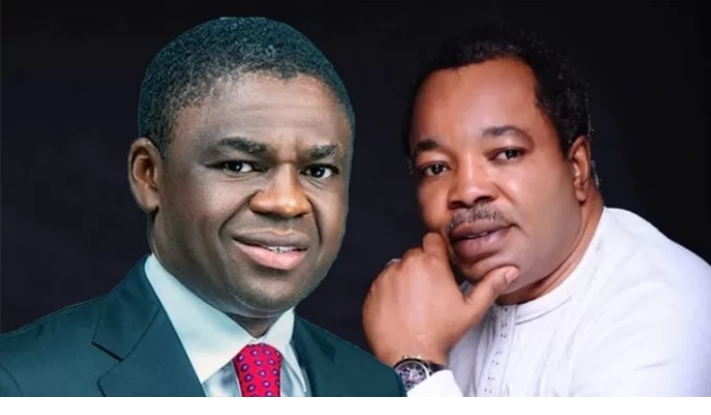

Embattled Deputy Governor of Edo State, Philip Shaibu, is enmeshed in a very scandalous allegations.
A chieftain of the All Progressives Congress, APC, Jarret Tenebe, has publicly accused Shaibu of stealing.
BARELY two days before the house of assembly election in Edo state, the State Acting Chairman of the All Progressives Congress (APC), Jarret Tenebe has been arrested allegedly on the orders of the deputy governor of Edo state Hon Philip Shaibu.
.In his interview with NewsThumb Publisher/Editor-In-Chief, SOTAYO OLAYINKA a couple of days back in Abuja. He spoke on a numbers of issues concerning Edo, Nigeria and others.
Can we meet you, Sir?
My name is Jarret Tenebe and I am the acting chairman of the All Progressive Party in Edo State.
What’s your take on the Edo state Crisis between Governor Obaseki and Deputy Shuaibu as he Declares his intention to run for governor in the next election?
Though we are not from the same party, from what I’ve heard, well, I am not surprised due to the kind of person the deputy is. The deputy is known to be disloyal and lacks the trust of his boss. They were like two robbers who came to Edo state; I am sure they were fighting because of the loot and how to share it. Now, their tenure is wounding up.
You previously emphasised how the deputy stole your wristwatch. Can you explain further how? you are not at the same party? Where did it happen, at an event, party or where?
I made it very clear when I went to submit my petition to the Inspector General of Police (IGP). Sometimes, four days before the House assembly election, the deputy governor of police security came to take me forcefully at about 2am one night. However, we went from the same local government areas, and they abducted me to Benin; getting there, they tried to put a gun into my hands, and a fight ensued between us, but with such a scuffling, my customised Daytona Rolex wristwatch got removed by them, We made our way to the state command, where I provided a statement. Subsequently, they ran away, likely because the police recognised them as individuals associated with the deputy governor, Shuaibu. I registered in my statement that they had stolen my wristwatch and that they should recover it for me. Though the deputy governor was not there, you know, sometimes later, I went to America for holidays, at a conference on the invitation to see someone there, I saw Edo deputy governor, Shuaibu, wearing my customised Rolex watch with my name on it, I tried to reach out to him, but he ran away from the event. I was there with my 8-year-old daughter and in a foreign land. I wouldn’t want to run after him, but I let him go. When I got back, I wrote a petition to IGP about it, and he has never gone on to deny my accusations anywhere, owing ip to the fact that it’s true. He will return my wristwatch, whether he likes it or not.
You remarked earlier about studying law. What informs that decision?
I am studying law at BAZE University to find a way to contribute to better equip myself. Imagine the deputy using his office and power to take me away and steal my wristwatch forcefully. I am currently at the Code of Conduct Bureau with petitions for their awareness. We must do something for our laws for those in authority to be brought to book when they err, to contribute my quotas to constitutional reviews to avoid having criminals as leaders. That’s why I am studying law now, after which I will graduate from law school and contribute my piece to our laws.
I want you to shed more light on the Edo state elections. Does the government use the power of incumbency to intimidate the opposition parties during the Presidential election?
That’s exactly what happened, you know, because Wyhey belongs to the ruling party in Edo state, and then we have a president who cares less about his party. Of course, they worked against us; if not for that, they removed our leader, Adams Oshiomole, and our former President could not have supported us, so we lost in the state. They could treat us that way due to former president Buhari’s no-challenge attitude. They wouldn’t go away with it because this government is not smiling at them.
In conclusion, as the 2024 election draws closer, what is your advice to your party?
The only thing I tell my people is now that we are the ruling party, they are sure we are taking over. I also want to warn the Edo state police commissioner that I am now the acting APC chairman, which will be different than usual. I am not peaceful; I don’t look for trouble, but anyone who brings trouble to me will always meet difficulty.
What is your advice for the President regarding economy and security?
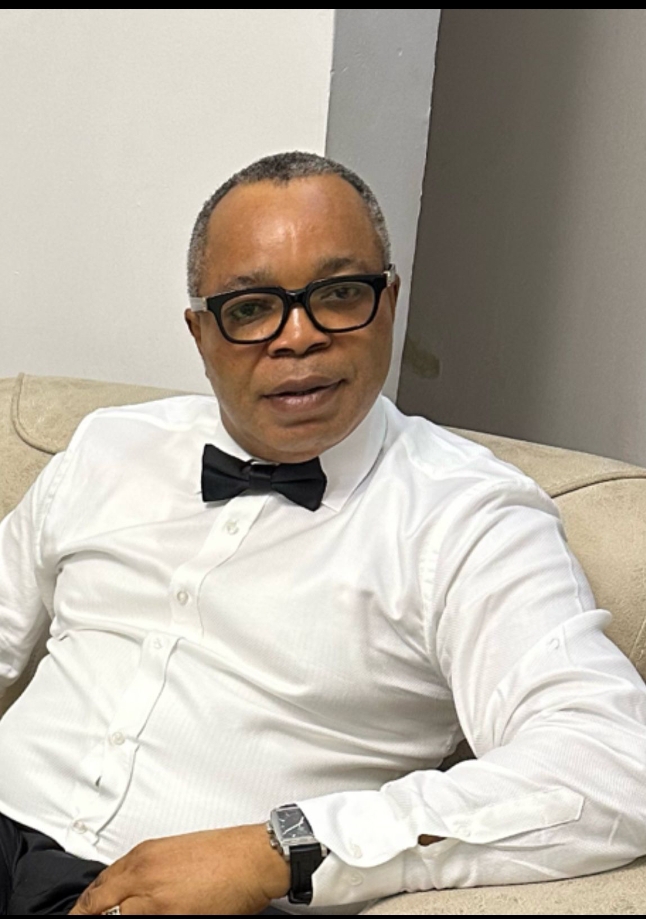
The President is doing very well and still needs to complete his steps. I know he’s going to deliver on his promises to the masses.
interview
NIGERIA MECHANIZED AGRO EXTENSION SERVICE PROJECT, A STRATEGIC MOVE TO ALLEVIATE POVERTY – DR. AMINU ABDULKADIR
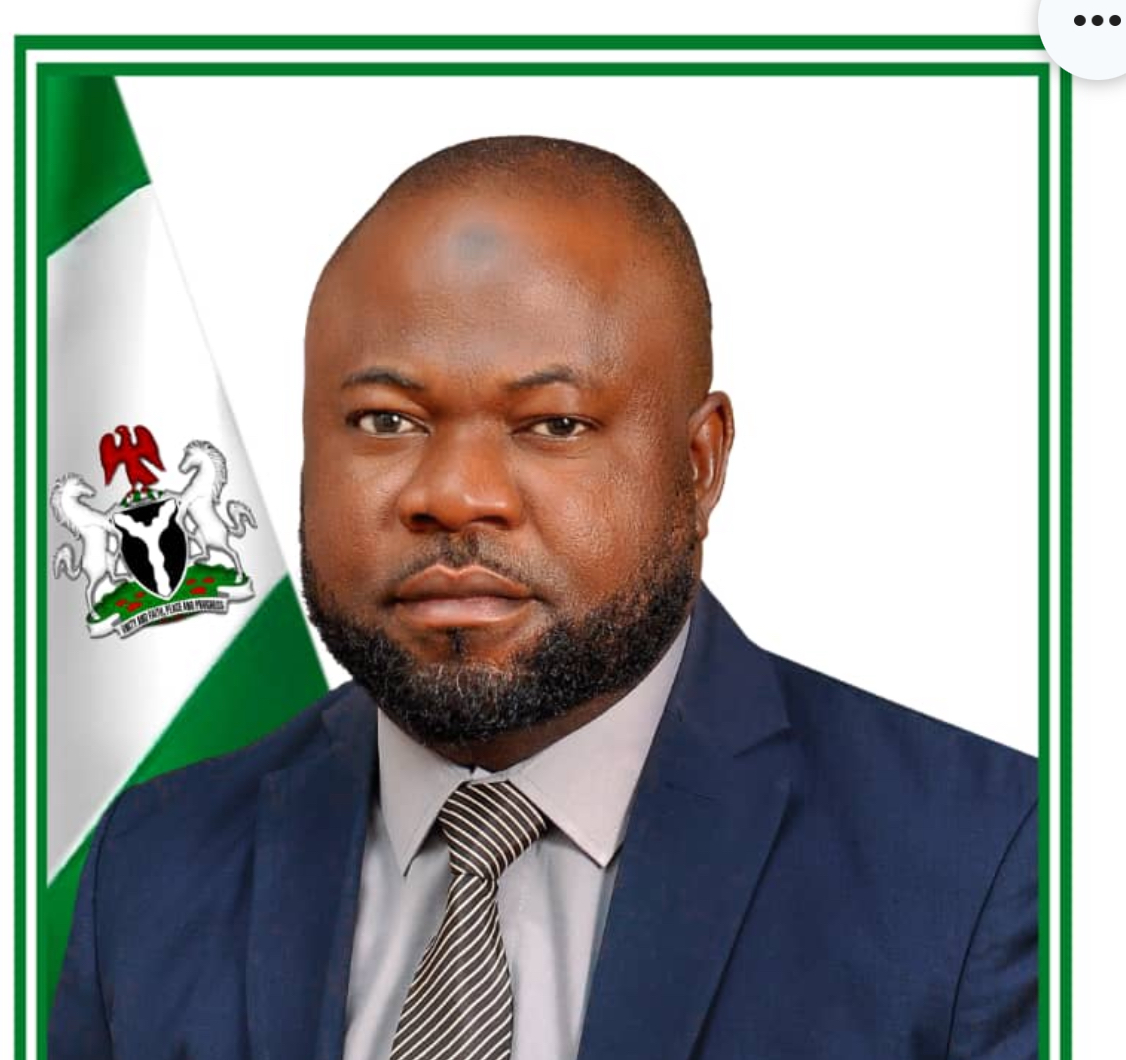
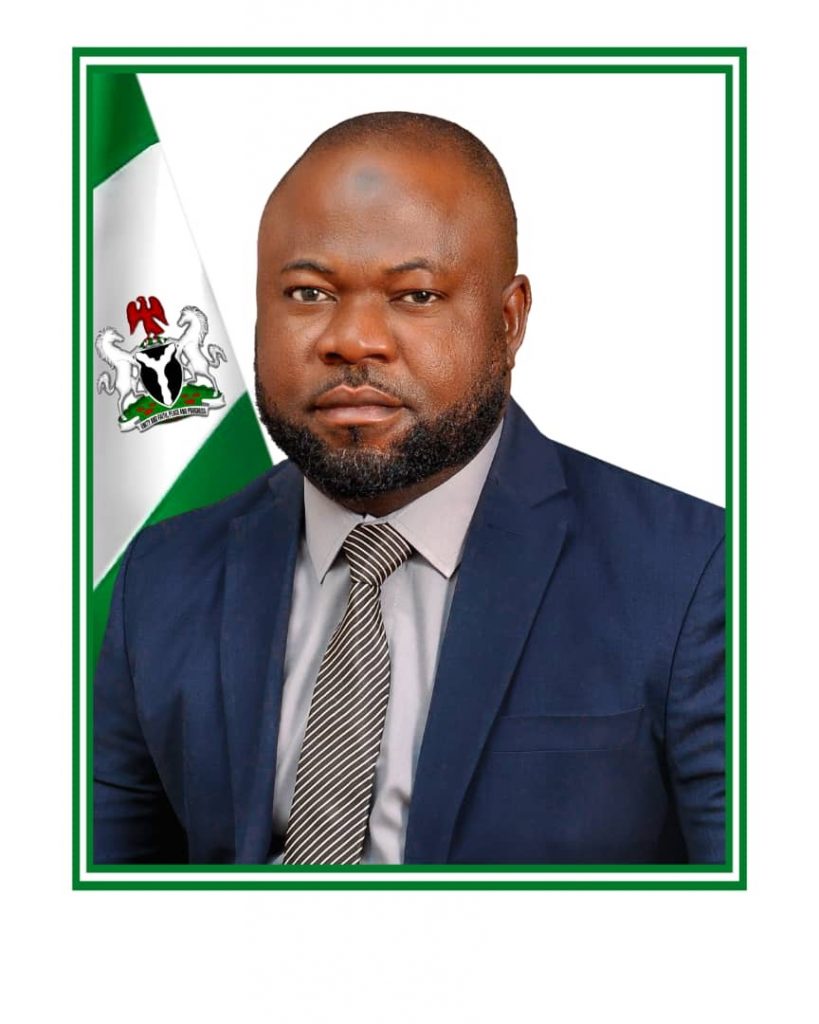 …. A strategic Agricultural project for job creation, poverty alleviation, sustainable food security and sustainable Economic growth and development of Nigeria.
…. A strategic Agricultural project for job creation, poverty alleviation, sustainable food security and sustainable Economic growth and development of Nigeria.
The Managing Director of NATIONWIDE AGRICULTURAL MECHANIZATION COMPANY OF NIGERIA LTD (NAMCON) and National President of NAMCON GROUP while speaking with Sotayo Newsthumb publisher stated that NAMCON was Established to rebrand Agriculture, with a view to creating job opportunities, alleviate poverty, promote food security and sustainable Economic growth and development of Nigeria. He stated that NAMCON project is strategically structured to relief the Federal government of the burden of funding Agriculture and promote increase private sector investment in the entire Agriculture value chain.
Abdulkadir emphasized that no sector of Nigeria has the capacity to create job and engage the youths like the Agricultural sector. NAMCON project has the capacity to engage 15 million youths in 5years across Nigeria.
The managing Director and Chief Executive Officer of Nationwide Agricultural Mechanisation Company of Nigeria (NAMCON), Dr. Aminu Abdulkadir, along with a Board member, Engineer Ibraheem Mustapha, the management of NAMCON revealed the plan for the creation of 528 Mechanized Agricultural centers across Nigeria.
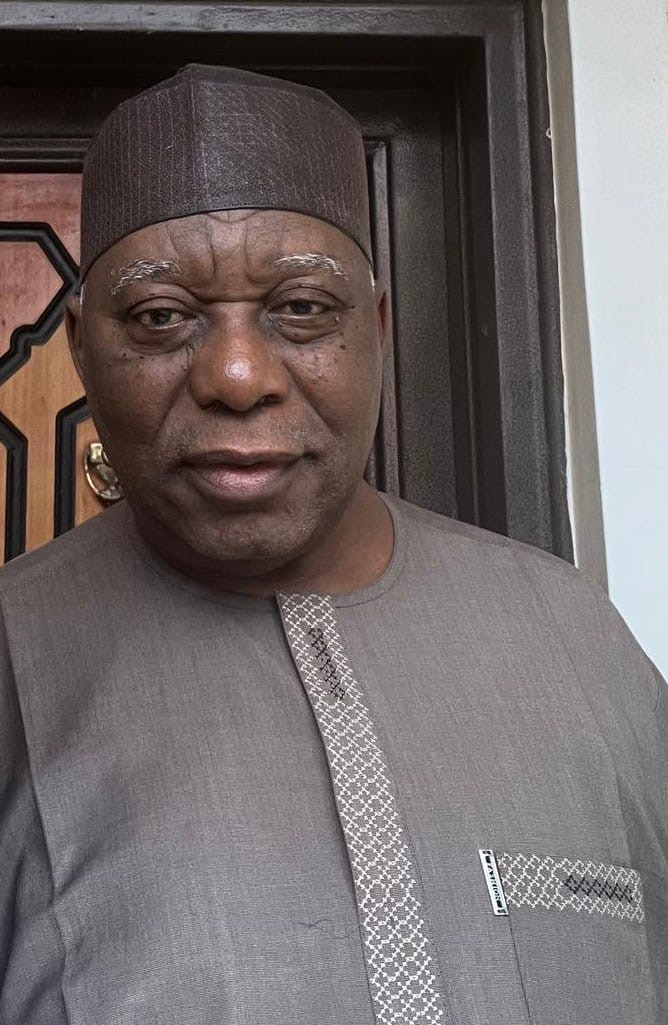
Expert………,
WHAT MOTIVATED THE ESTABLISHMENT OF NAMCON AT THIS PERIOD IN THE NATION?
I would say NAMCON is a child of necessity, created after 15 years of intensive research and survey of the agricultural sector with different experts from various units in the industry. We studied and reviewed past Agricultural projects both public and private Agricultural projects and their challenges from 1980 till date. To resolve these numerous challenges NAMCON was created to unlock the enormous potential of the sector and provide comprehensive agricultural solution to rural farmers who constitute over 80% of the farming population of Niigeria. We took into cognizance the need to reduce government funding of Agriculture and make it attractive to private investors.
We have five unique projects code named NAMCON SUPER 5 PROJECTS. The project includes:
1. Nigeria mechanized Agro extension service project.
2. Nationwide Livestock Development Project.
3. Women Nurturing Birds for Wealth Project.
4. Nigeria Agro Market Space.
5. Farmers Housing Project
NAMCON SUPER 5 PROJECTS are strategically structured to provide comprehensive agro solution through the 528 centers across Nigeria.People go to hospitals when they are sick, and when their rights are trampled on, they go to court to seek redress. But where do farmers go for help? Challenges such as these led to the establishment of NAMCON, where farmers will have access to mechanized agricultural consultancy services, technical support, supply of inputs such as improved seedlings, herbicides, organic fertilizer and storage facilities.
For several years, the government has funded the agricultural sector, yet less than 30% of our actual capacity has been utilized. NAMCON has 1400 primary Cooperatives, 284 Union Cooperatives and 32 State Apex Cooperative Societies. To maximize the full potential of the sector, NAMCON will create NAMCON centers in 528 Local Government Areas out of 774 local government councils, with these centers domiciled predominantly in rural areas for farmers. Farmers in these locations do not need to wait for the government but can visit the centers and access all the mechanized extension services and inputs.
Just as doctors diagnose patients to prescribe drugs, these centers will attend to farmers’ challenges—from soil preparation to seedlings. At harvest time, farm produce is shared in a 60/40 ratio: 60% goes to the farmers, while 40% covers administrative costs for the partners. We want to ensure that farmers get premium value from their farming activities.
With this, the yearly struggle to buy fertilizers will be eliminated. Young people, especially those who couldn’t secure white-collar jobs, will be attracted to farming, and their educational upliftment will enable them to contribute to the economy. The project will also drive down the cost of living, complementing the efforts of His Excellency, Asiwaju Bola Tinubu President and commander in chief of the Federal Republic of Nigeria.
We strongly believe that this agricultural project alone can generate at least 15 million jobs within the next three years. It is not rocket science—agriculture is the biggest and best sector that can absorb the labor force, contributing more to the country than oil and gas, ICT, telecommunications, and tourism. Agriculture is vast, and it is the silver bullet that can tackle unemployment, rural-urban migration, poverty, and insecurity in our country.
With our collaboration with the federal government, this project will bring significant sustainable development to Nigeria.
You mentioned bringing tractors to the country and supplying farmers with inputs. How do you intend to fund this and recoup your investment?
Thank you. To revitalize agriculture sector, one needs technology and mechanization. Those who need these machines cannot afford them, and those who can afford them are not interested.
We also understand the numerous efforts and interventions of the federal government under the leadership of President Tinubu in the last two years to bring back mechanization however efforts must be made not to repeat the mistakes of the past. Government can not own and manage and efficient agricultural project.
While we were planning to select a reputable manufacturer that will supply all the equipment needed, we received an invitation from the Chinese government to attend an Agricultural investment summit where we met different tractor manufacturers, and investors willing to supply, manage, and run the equipment with us over a period of 10years.
Our partners have agreed to supply 30,000 units of tractors over five years. other component of the infrastructure include.
1) To deploy 27,000 units of 75Hp Tractors complete with all implements across 528 Local Government Areas over the next 5years.
2). To train and employ 150,000 Youths as Agro Extension Staff over 5years.
3). Provide comprehensive Mechanized Agricultural services to 15million small holder farmers across Nigeria.
4). Provide standard inputs such as Improved seedlings, Herbicide, Organic Fertilizer for the farming of 11 major crops for local consumption and export.
5). Creation of 600 Customized storage centers across Nigeria.
6). Creation of 900 Super Food stores across Nigeria in 5 years.
7). Creation of 2 major service centers and Spare parts centers in North and South.
8). To deploy 600 CNG powered dedicated trucks for the transportation of Agricultural produce.
9). To deploy 600 Bulldozers and Excavators dedicated to creating access roads to farm settlements and cluster farms.
10). Supply of 25,000 Motor cycle for farm inspection, monitoring and supervision.
We are not giving the tractors to farmers outright but providing them as a service. For instance, cultivating one hectare of rice plantation according to international standards costs an average of ₦800,000, which farmers cannot afford. So, we offer this service to them and take 40% of the revenue generated. Farmers do not need to own any of these machines.
How do you raise funds to cover over 500 local governments for the project?
We have both technical and financial partners. The technical partners supply the equipment, while the financial partners fund the project. We have a payback period of about five to ten years.
This strengthens our belief that the agricultural sector is vibrant enough to generate the cash flow needed for repayment. We can feed ourselves and export to other countries. There is a huge market for our cassava in China, and our ginger is highly valuable. These crops alone can generate up to a billion dollars in annual revenue.
All we need is a strategic administrative support of the federal government.
Has this project been communicated to the state governments?
We are currently in discussions with state governments. Every level of government will have a role to play—from federal to local governments, with various contributions that are not necessarily financial.
Relevant government ministries department and agencies will play strategic roles and the traditional rulers will play active role in profiling rural farmers in their communities. Our reward system takes care of all level of government.
How will your organization handle insecurity, especially the herdsmen menace?
Security is primarily the government’s responsibility. We cannot guarantee security, but we have an integrated security solution.
We will engage idle hands in communities so they are not recruited into criminal activities. The social and cultural values of herders must be preserved in any agricultural project. We are creating semi-open grazing areas where they won’t have to roam in search of feed.
Each local government will have designated centers, including demonstration areas where herders can be introduced to modern livestock management through illustrated videos.
Rather than forcing them to buy feed immediately, we will integrate them into the project, gradually shifting their orientation. As they realize that these centers provide better milk yields and improved livestock value, they will naturally adopt the system.
What guarantees do you have regarding your Chinese partners’ ability to supply the needed equipment?
During our visit to China, the government invited many equipment manufacturers and assessed their capacities. Three factors made Zoom-Lion stand out:
1. We needed a manufacturer willing not only to sell equipment but also to operate it with us.
2. They have global coverage and a strong quality control system.
3. The company is 30% owned by the Chinese government and 70% by private investors.
ZOOMLION is the leading heavy equipment manufacturer in China and the fastest-selling agricultural equipment brand in Nigeria.
They have agreed to train and employ two technical personnel for every tractor brought into Nigeria and provide maintenance services. Additionally, ZOOMLION will establish training centers and an Agricultural Technical Hub in Abuja, serving as a seed improvement center, tourism attraction, and equipment assembly plant.
Have you introduced the NAMCON project to President Tinubu’s government, and what kind of collaboration is needed?
At the initial stage, the government can invest—not like the previous interventions where the government provided funding without a structured approach. Instead, we need the government to provide what we call Strategic Administrative Endorsement to establish statutory responsibilities through its agencies and MDAs. Agencies such as NADF and NAFDAC are needed to certify seedlings and other essential imports, while institutions like the Bank of Industry (BOI) would be crucial for effective collaboration.
The Federal Government is primarily responsible for directing all MDAs to participate in the project, ensuring that the benefits for all stakeholders are well-defined for national economic progress. In line with this, we are proposing a national delegation, in collaboration with our Chinese partners, to pay courtesy visits to major stakeholders in Nigeria’s agricultural sector and to our esteemed President. This will serve to formally introduce him to the project and its potential impact on the country.
What is your general assessment and scorecard for President Tinubu?
Well, I must commend Mr. President. Though it is not easy, as a student of economics and a realist, we understand how bad things were before he came to power. What previous Presidents couldn’t do, he has done. He took the bull by the horns—he has performed the necessary “surgery” to remove the “cancer” in our economy. The economy is rebounding, and we are seeing positive signals across major sectors. Food prices are declining, more people are returning to farming, and interest in agriculture is increasing. Our young people are now benefiting from student loans.
So many positive changes have been witnessed, but we strongly believe that our project will complement Mr. President’s efforts by serving as a major silver bullet to further drive economic recovery. There is no road or airport you construct today that will have an immediate impact on rural communities, but agriculture remains the only sector that can thrive without heavy private contributions. That is why our project is strategically designed to partner with the Federal Government in moving the nation forward within a short time.
I also want encourage him to continue on this path because he is doing exceptionally well. He understands the challenges ahead, and that is what brings me joy. I remember during the campaign, someone asked who among the presidential candidates was the best, and Asiwaju Bola Tinubu was rated as the best strategist. That is the approach that successful countries adopt for growth. He is not working for himself but for national progress. Instead of congratulating him, I would rather congratulate all of us.
I know several Nigerian investors who had left but are now returning to invest. However, naysayers refuse to admit that he is doing well. My advice is for him to stay the course. Personally, I have observed that he is not backing down and is leaving no stone unturned. I do not see him serving only one term—I believe, by God’s grace, he will successfully secure a second term.
Engineer Ibraheem Mustapha, a key stakeholder at NAMCON and a former Managing Director of the Federal Housing Authority (FHA), has served Nigeria in various capacities. Drawing from his wealth of experience, he emphasizes the need to take agriculture seriously. He affirms that Nigeria can achieve progressive growth similar to China and Singapore if government-private initiatives are allowed to thrive for the benefit of all citizens. He further asserts that the NAMCON project, in collaboration with the Federal Government, will lift Nigeria out of food scarcity and add significant value to President Tinubu’s scorecard.
interview
My vision is to engage Nigerian youths in sports to promote national pride on the global stage and grassroots developments without political infiltrations, says Senator Obinna Ogba
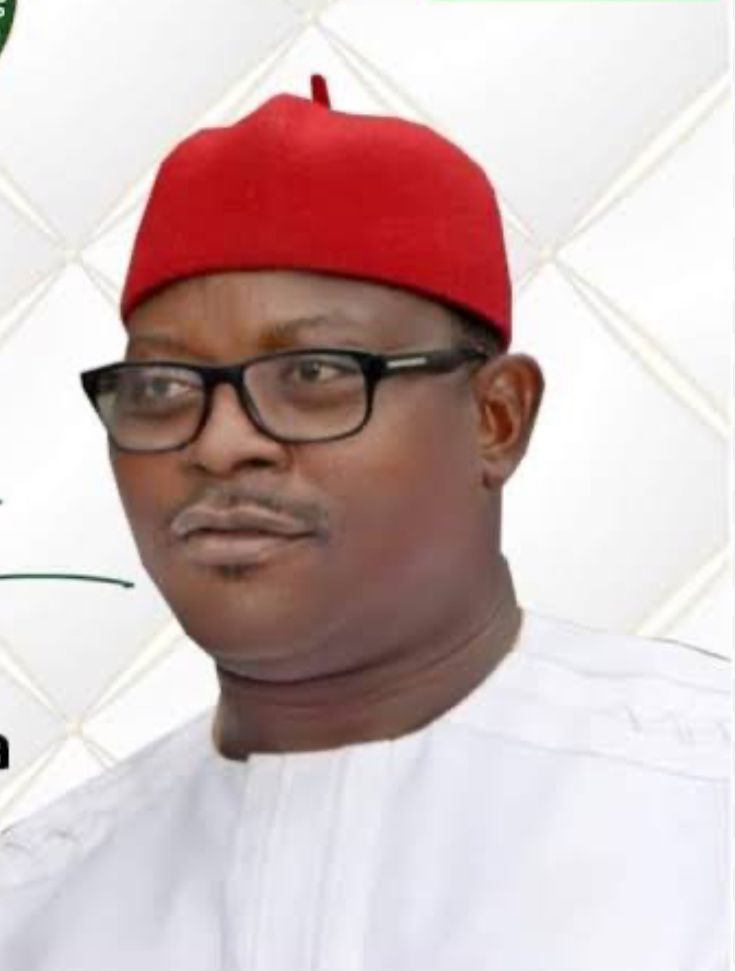
 .
.
On moving Nigerian sports forward in Nigeria highlight a task that is long overdue. For any renewal move to be achieved, drastic steps and deliberate actions need to be upheld. A former senator representing Ebonyi Central Senatorial District in the 8th and 9th Assemblies, Senator Obinna Joseph Ogba, who is also a sports administrator, hails from Amanvu-
Nkalagu Community in Ishielu Local Government Area of Ebonyi State. Senator Obinna bares his mind on ways Nigerian sports can take its place in the community of sports nations.Excerpt:
We heard of your move from PDP to APC. What informed your decision and belief in this government?
A political party is like a vehicle that can convey you to a destination, and when you get there, it becomes about Nigeria. I never liked APC as a party before, but Senator Oluremi Tinubu talked me through it while we were at the Senate together. She was then the chairman of my committee. It was then I began to yield to APC agendas.
The party I belonged to also disenfranchised me from the Ebonyi State governorship ticket. Myself and others, like my mentor in Ebonyi State, Sen. Anyim Pius Anyim, decided to support APC before the election. It’s therefore wrong for people to assume I just joined APC after the 2023 election. So far, so good. We have been doing well and making efforts to contribute our own quotas, hoping that one day our names can come out at the national level.
Can you mention some of your scorecards during your terms in the 8th and 9th Assemblies?
I don’t like blowing my own trumpet but prefer people to talk about my achievements. However, let me mention them. No senator from Ebonyi State has done what I did since the state’s creation in 1996. I built a stadium while I was the Chairman of the Senate Committee on Youths and Sports for eight years. I assisted in facilitating over 480 Ebonyians into the federal civil service, and all of them are growing in the system. It gives me joy to see those Ebonyians. We attracted developments like road constructions and bridges. I included my community projects in the Nigerian budget, which was unprecedented in the history of Ebonyi State. That is why, on the floor of the Senate, I thank those who introduced constituency projects because, without such initiatives, people like us might not get anything as community gains from the federal government. A cassava processing plant is also part of what my representation brought to my community to date. My first senatorial bill was on the University of Sports, the first in West Africa, which has today been signed into law. Again, to show you that President Tinubu is doing well in recognizing the importance of youths, he has approved the university, which would soon be commissioned, and a vice-chancellor will be appointed. The National Sports Commission has been an illegal entity, and if the President didn’t like it, it could be scrapped. But I had to push a bill for the National Sports Commission, which former President Buhari assented to. That was my bill. Presently, Mr. President has also started implementing the law. Very soon, he will appoint a Director General to run the day-to-day operations of the Commission. When you look at the Commission for Physically Challenged Bill too, I was a partner to it. The National Lottery Bill was also my bill, though former President Buhari refused to assent to it, but the National Assembly vetoed it. That is one of the two bills in Nigeria that has been vetoed. The NDDC Bill during Obasanjo’s era was refused, and this National Lottery Bill was also refused by Buhari, and both were vetoed by the Assembly. I have a lot to tell. The South-East Development Commission (SEDC) Bill was also initiated by me. Now that President Tinubu has consented, myself, Senator Stella Odua, and Anyanwu were the first to sponsor the bill. Buhari assented to the North-East Development Commission (NEDC) but refused the SEDC Bill then. Thank God the present Deputy Speaker has now represented and sponsored the bill, which was assented to by Mr. President. The South-East would forever be grateful for that.
If Mr. President offers you the position of Director General of the Sports Commission today, what would you do differently?
Well, since I know everything about the bill, I have been in sports management all my life. I was a Commissioner for Youths and Sports in Ebonyi State, Senior Assistant to the former Ebonyi State Governor on Youths and Sports, First-Vice President of the Nigerian Football Association (NFA), a retired referee, coach, and former member of the Confederation of African Football (CAF). My credentials in sports speak for me to develop Nigerian youths and sports, to uplift Mr. President’s government in the areas of youths and the Renewed Hope Agendas because you need a system that can relate the agendas to the grassroots. One sure way is through sports. I mean wholesome sports. Be mindful that football is not the only sport we can push to the forefront; there are many other arms of sports too. The era of Nigerians going for international sports competitions without bringing home medals would be a thing of the past. We would ensure sports activities are developed without political infiltrations. I will use my experience to convince Mr. President of the need to develop sports to make his Renewed Hope Agendas proud.
I will develop athletes’ training policies to get them adequately prepared for any competition whatsoever. Releasing money within two to three weeks before a competition would not yield any results; such funds would be a waste. The Olympics is a four-year interval event, and we would no longer wait for athletes to roam the streets without adequate care.
I am aware Mr. President has released ₦12 billion to the Sports Commission, and such funds can be used to care for these talented athletes and not just be spent on a fire-brigade approach for winning Olympic medals with only weeks of preparation—it would never happen. Such funds need to be put to use between now and the next Olympics, while releasing a few billion naira around the tournament period would suffice to achieve commendable results.
My governor just established a football club and appointed me as the chairman of the club. As I am here, I think and talk sports. If given the opportunity, I will do well. In fact, in talking about sports in Nigeria, there is no way my name would not be mentioned. I have a lot to offer. Even most sports ministers usually consult us when they are appointed. You know, after your advice, when money comes, they won’t call you again or even follow the advice offered, and that’s why they always fail.
When people without a track record in sports are appointed, someone like the man from Plateau State who had no knowledge about sports and didn’t belong to the sports community, he was unable to do anything. When you don’t belong to the sports community, you find it difficult to do well and may become frustrated.
In sports, we can also partner with private organizations to raise funds to support sports, making accountable use of the resources garnered to support Mr. President’s Renewed Hope Agendas. I believe in the power of sports as a uniting force for the country.
If given the privilege, I can also establish a National Sports Fund for sustainable funding because most sports funds come from the government alone, and it shouldn’t be so. I will also facilitate sports commission workforce welfare, including coaches and staff. These are the administrators, and adequate training is expected to be given to them for efficiency.
My vision is to engage Nigerian youths to promote national pride on the global stage. I am confident that with the right approach, Nigerian sports can be taken to international levels sustainably.
What do you admire most, and what are your suggestions to Mr. President for almost two years of his administration?
It was his effort to give national honors to athletes who could not win the CAF tournaments but became second with silver medals. No President has ever done that. The President and General Secretary of the NFA were also given national honors. In 1980, when Nigeria first won gold, they were not given national honors. Up to 10 times now, it’s happening for the first time.
Though people say things are very hard and go demonstrating, as an Igbo man, we don’t believe in that. We support President Tinubu’s government. By the time he finishes his second term in office, everything will be normalized.
Why do you think South-Eastern States supported Mr. President?
Our people don’t lie; we focus on what we believe in. Imo and Ebonyi States are APC states. We also believe that by 2027, APC will capture more. Mr. President has been doing well. See the Southeast Development Commission (SEDC) he assented to and approved. Mr. President’s wife visiting our state and we are there to warmly welcome her. We don’t hide our support for him.
How do you think Nigeria can perform well in international competition?
Simply by early preparation. Participants must be fully engaged and exposed to international friendlies to sharpen their talents. We should also learn how to play boardroom politics—that is, not allowing all these Francophone country referees to officiate in our matches against other Francophone nations due to biased officiating. Neutral officials, perhaps from Northern Africa, would be better suited for such games.
If I am appointed Director General, I will make sure Mr. President hosts an African tournament, which would also sell the nation to the world. After Obasanjo, it’s only former President Yar’Adua that hosted an African game. We have something upstairs to offer and make his 2027 election easier for him to win.
What do you think affected our sporting facilities in Nigeria?
Lack of maintenance. We lack a maintenance culture. All our facilities become old. I don’t see any reason why the National Stadium in Lagos should not be working. How much do we think the stadium would cost to maintain that we cannot afford? That stadium, in question, can also yield revenue to cover maintenance costs.
Nigeria has only one FIFA-approved stadium, which is in Akwa Ibom State because the state keeps maintaining it. The National Stadium in Abuja can be maintained too. If appointed, I can reach out to Julius Berger to maintain the stadium to secure a contract from us.
There is also another way we can manage it through private partnerships. Even UBA, as a bank, can be contracted to maintain the stadium for 20 years and earn revenue from it. Dangote, too, can handle it. Look at Murtala Muhammed Airport (MM2) in Lagos—it’s been under private management and functions profitably to this day.
Again, the National Lottery needs to go into sports. In fact, the National Lottery is not paying enough to the federal government as it ought to. We have to ensure they pay all that is due to them.
In addition, our national leagues should be opened for support from government and private organizations. They should not rely only on clubs to survive.
In all, there is no government that has done what Mr. President has done in Nigeria. Security issues have gone down. The proposed tax reforms, too, are a fantastic economic policy to take Nigeria to the next level.
In moving Nigerian sports forward in Nigeria highlight a task that is long overdue. For any renewal move to be achieved, drastic steps and deliberate actions need to be upheld. A former senator representing Ebonyi Central Senatorial District in the 8th and 9th Assemblies, Senator Obinna Joseph Ogba, who is also a sports administrator, hails from Amanvu-
Nkalagu Community in Ishielu Local Government Area of Ebonyi State. Senator Obinna bares his mind on ways Nigerian sports can take its place in the community of sports nations.
Excerpt:
We heard of your move from PDP to APC. What informed your decision and belief in this government?
A political party is like a vehicle that can convey you to a destination, and when you get there, it becomes about Nigeria. I never liked APC as a party before, but Senator Oluremi Tinubu talked me through it while we were at the Senate together. She was then the chairman of my committee. It was then I began to yield to APC agendas.
The party I belonged to also disenfranchised me from the Ebonyi State governorship ticket. Myself and others, like my mentor in Ebonyi State, Sen. Anyim Pius Anyim, decided to support APC before the election. It’s therefore wrong for people to assume I just joined APC after the 2023 election. So far, so good. We have been doing well and making efforts to contribute our own quotas, hoping that one day our names can come out at the national level.
Can you mention some of your scorecards during your terms in the 8th and 9th Assemblies?
I don’t like blowing my own trumpet but prefer people to talk about my achievements. However, let me mention them. No senator from Ebonyi State has done what I did since the state’s creation in 1996. I built a stadium while I was the Chairman of the Senate Committee on Youths and Sports for eight years. I assisted in facilitating over 480 Ebonyians into the federal civil service, and all of them are growing in the system. It gives me joy to see those Ebonyians. We attracted developments like road constructions and bridges. I included my community projects in the Nigerian budget, which was unprecedented in the history of Ebonyi State. That is why, on the floor of the Senate, I thank those who introduced constituency projects because, without such initiatives, people like us might not get anything as community gains from the federal government. A cassava processing plant is also part of what my representation brought to my community to date. My first senatorial bill was on the University of Sports, the first in West Africa, which has today been signed into law. Again, to show you that President Tinubu is doing well in recognizing the importance of youths, he has approved the university, which would soon be commissioned, and a vice-chancellor will be appointed. The National Sports Commission has been an illegal entity, and if the President didn’t like it, it could be scrapped. But I had to push a bill for the National Sports Commission, which former President Buhari assented to. That was my bill. Presently, Mr. President has also started implementing the law. Very soon, he will appoint a Director General to run the day-to-day operations of the Commission. When you look at the Commission for Physically Challenged Bill too, I was a partner to it. The National Lottery Bill was also my bill, though former President Buhari refused to assent to it, but the National Assembly vetoed it. That is one of the two bills in Nigeria that has been vetoed. The NDDC Bill during Obasanjo’s era was refused, and this National Lottery Bill was also refused by Buhari, and both were vetoed by the Assembly. I have a lot to tell. The South-East Development Commission (SEDC) Bill was also initiated by me. Now that President Tinubu has consented, myself, Senator Stella Odua, and Anyanwu were the first to sponsor the bill. Buhari assented to the North-East Development Commission (NEDC) but refused the SEDC Bill then. Thank God the present Deputy Speaker has now represented and sponsored the bill, which was assented to by Mr. President. The South-East would forever be grateful for that.
If Mr. President offers you the position of Director General of the Sports Commission today, what would you do differently?
Well, since I know everything about the bill, I have been in sports management all my life. I was a Commissioner for Youths and Sports in Ebonyi State, Senior Assistant to the former Ebonyi State Governor on Youths and Sports, First-Vice President of the Nigerian Football Association (NFA), a retired referee, coach, and former member of the Confederation of African Football (CAF). My credentials in sports speak for me to develop Nigerian youths and sports, to uplift Mr. President’s government in the areas of youths and the Renewed Hope Agendas because you need a system that can relate the agendas to the grassroots. One sure way is through sports. I mean wholesome sports. Be mindful that football is not the only sport we can push to the forefront; there are many other arms of sports too. The era of Nigerians going for international sports competitions without bringing home medals would be a thing of the past. We would ensure sports activities are developed without political infiltrations. I will use my experience to convince Mr. President of the need to develop sports to make his Renewed Hope Agendas proud.
I will develop athletes’ training policies to get them adequately prepared for any competition whatsoever. Releasing money within two to three weeks before a competition would not yield any results; such funds would be a waste. The Olympics is a four-year interval event, and we would no longer wait for athletes to roam the streets without adequate care.
I am aware Mr. President has released ₦12 billion to the Sports Commission, and such funds can be used to care for these talented athletes and not just be spent on a fire-brigade approach for winning Olympic medals with only weeks of preparation—it would never happen. Such funds need to be put to use between now and the next Olympics, while releasing a few billion naira around the tournament period would suffice to achieve commendable results.
My governor just established a football club and appointed me as the chairman of the club. As I am here, I think and talk sports. If given the opportunity, I will do well. In fact, in talking about sports in Nigeria, there is no way my name would not be mentioned. I have a lot to offer. Even most sports ministers usually consult us when they are appointed. You know, after your advice, when money comes, they won’t call you again or even follow the advice offered, and that’s why they always fail.
When people without a track record in sports are appointed, someone like the man from Plateau State who had no knowledge about sports and didn’t belong to the sports community, he was unable to do anything. When you don’t belong to the sports community, you find it difficult to do well and may become frustrated.
In sports, we can also partner with private organizations to raise funds to support sports, making accountable use of the resources garnered to support Mr. President’s Renewed Hope Agendas. I believe in the power of sports as a uniting force for the country.
If given the privilege, I can also establish a National Sports Fund for sustainable funding because most sports funds come from the government alone, and it shouldn’t be so. I will also facilitate sports commission workforce welfare, including coaches and staff. These are the administrators, and adequate training is expected to be given to them for efficiency.
My vision is to engage Nigerian youths to promote national pride on the global stage. I am confident that with the right approach, Nigerian sports can be taken to international levels sustainably.
What do you admire most, and what are your suggestions to Mr. President for almost two years of his administration?
It was his effort to give national honors to athletes who could not win the CAF tournaments but became second with silver medals. No President has ever done that. The President and General Secretary of the NFA were also given national honors. In 1980, when Nigeria first won gold, they were not given national honors. Up to 10 times now, it’s happening for the first time.
Though people say things are very hard and go demonstrating, as an Igbo man, we don’t believe in that. We support President Tinubu’s government. By the time he finishes his second term in office, everything will be normalized.
Why do you think South-Eastern States supported Mr. President?
Our people don’t lie; we focus on what we believe in. Imo and Ebonyi States are APC states. We also believe that by 2027, APC will capture more. Mr. President has been doing well. See the Southeast Development Commission (SEDC) he assented to and approved. Mr. President’s wife visiting our state and we are there to warmly welcome her. We don’t hide our support for him.
How do you think Nigeria can perform well in international competition?
Simply by early preparation. Participants must be fully engaged and exposed to international friendlies to sharpen their talents. We should also learn how to play boardroom politics—that is, not allowing all these Francophone country referees to officiate in our matches against other Francophone nations due to biased officiating. Neutral officials, perhaps from Northern Africa, would be better suited for such games.
If I am appointed Director General, I will make sure Mr. President hosts an African tournament, which would also sell the nation to the world. After Obasanjo, it’s only former President Yar’Adua that hosted an African game. We have something upstairs to offer and make his 2027 election easier for him to win.
What do you think affected our sporting facilities in Nigeria?
Lack of maintenance. We lack a maintenance culture. All our facilities become old. I don’t see any reason why the National Stadium in Lagos should not be working. How much do we think the stadium would cost to maintain that we cannot afford? That stadium, in question, can also yield revenue to cover maintenance costs.
Nigeria has only one FIFA-approved stadium, which is in Akwa Ibom State because the state keeps maintaining it. The National Stadium in Abuja can be maintained too. If appointed, I can reach out to Julius Berger to maintain the stadium to secure a contract from us.
There is also another way we can manage it through private partnerships. Even UBA, as a bank, can be contracted to maintain the stadium for 20 years and earn revenue from it. Dangote, too, can handle it. Look at Murtala Muhammed Airport (MM2) in Lagos—it’s been under private management and functions profitably to this day.
Again, the National Lottery needs to go into sports. In fact, the National Lottery is not paying enough to the federal government as it ought to. We have to ensure they pay all that is due to them.
In addition, our national leagues should be opened for support from government and private organizations. They should not rely only on clubs to survive.
In all, there is no government that has done what Mr. President has done in Nigeria. Security issues have gone down. The proposed tax reforms, too, are a fantastic economic policy to take Nigeria to the next level.
interview
I’M READY TO WORK AND SUPPORT PRESIDENT TINUBU TO REVIVE THE POWER SECTOR” – ENG ABIODUN OLOTU, FORMER MD/CEO, NDPHC
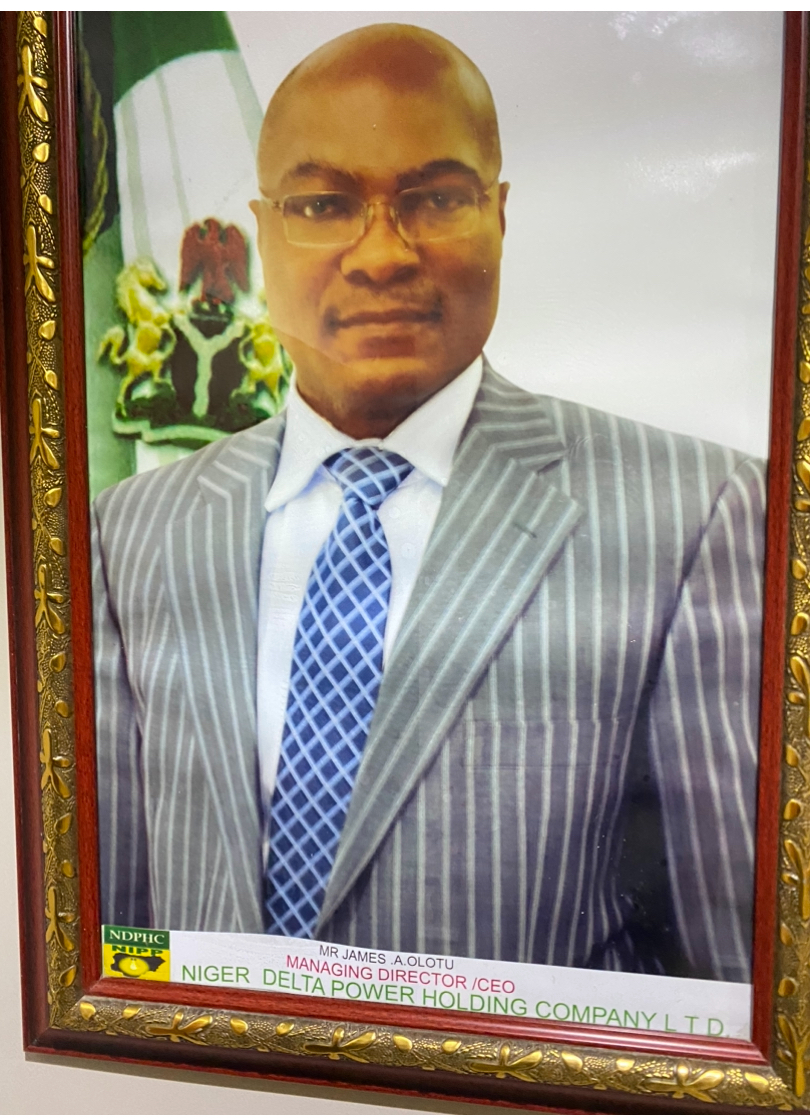
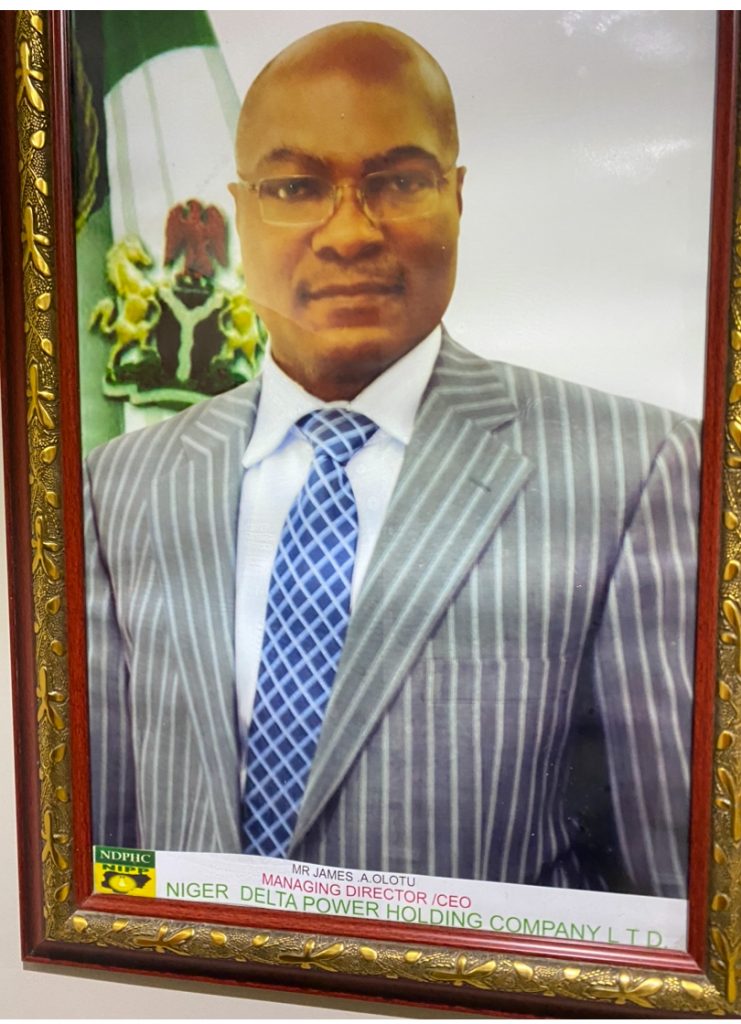
Engr. Abiodun is a member of professional bodies, including Fellow of the Nigerian Society of Engineers (FNSE 2027). He has served the country in various capacities. In an interview with NewsThumb Publisher/Editor-in-Chief, Sotayo Olayinka, a few days ago at his office in Abuja, he discussed several issues related to the power sector in Nigeria. Experts…
Can we meet you, Sir?
My name is James Abiodun Olotu, retired technocrat. My last job was at Niger Delta Power Holding Company (NDPHC) as the Managing Director and Chief Executive Officer. I am a fellow of the Nigerian Society of Engineers (FNSE) and other professional bodies, and I hold a PhD from Powell University in America. Our assignment at NDPHC was to build 20 power plants of 250 megawatts each and to build transmission lines and substations across the length and breadth of Nigeria. We were also to undertake numerous projects nationwide, including developing gas infrastructure to connect NGC to other power plants.
I was MD from 2006. When I left in 2016, we had delivered six out of the power plants, with three and a half left at about 70 percent completion and 2700 lines as of when I left. In Lagos, 66 projects were completed, including the Alagbon power project. The biggest transmission substation as of today is the one at Oke Aro in Lagos, with 1.5 megawatts transmission capacity on a 33 kV powerline.
It is the biggest in Nigeria and is located in Lagos State. The Lagos State Governor at the time, Mr. Babatunde Fashola, was instrumental in securing the land space used, which continues to serve the people of Lagos State to date. The projects were all over the nation. In 2016, former Vice President Yemi Osinbajo misunderstood the power sector programs and removed us without going through the law of CAMA, as it is a private sector entity where rules of disengagement are very clear.
Since I left, the 2600 megawatts we developed have since collapsed to around 309 megawatts. The balance of the projects we left, which would have been completed in 2018, remains unfinished to date. The people of Nigeria are encouraged that when dealing with the welfare of the people, we need those who are competent in their professional areas with the capacity to do the job, not based on tribal or emotional sentiments. The company, as a private business, is now run like a civil service job. All the beautiful virtues of running a private company have disappeared, which is why things that should grow in Nigeria are not.
Since you have left office and many are advocating for professionals like you to come back, is there any move or advice you have given to this country?
All of us voted for APC not just for the party alone but based on integrity and feedback on competency. We heard of Mr. President’s resilience when he was governor of Lagos State. We saw him tower above other Presidential candidates and wanted to join him in building this nation. Nigeria is blessed with natural resources, human capacity, and land, but the only thing we lack is good leadership to drive the economy to prosperity. If we now have a leader who can drive the economy away from the precipice, who can turn things around and bring us back to growth, the process might be tough because it is easier to destroy than to build. It is painful to build. My appeal is for knowledgeable people in their fields to join Mr. President in building this nation. Those who are good in finance, agriculture, petroleum, etc., should be brought together to join forces with Mr. President. I know that with those professionals, Nigeria can move forward.
Now that there has been little development since you left, would you come back if you were called to fix the national grid and transmission challenges in the power sector?
I am ready to come back to work with Mr. President to achieve his goals of renewed hope and ensure power supply is improved. The answer to why there has been no progress since we left is that certain things, like human capacity to drive the mission some other persons had done, must be needed before any impact can be made. When people are employed based on sentiment and not on merit, you would not achieve anything for the country. What Nigeria needs is the best hands regardless of region; be it male or female, it doesn’t matter. When you find people without knowledge spending three years on a project, technocrats would just spend two months and get it done. That’s the difference, and that’s what we want Mr. President to bring back to governance.
Now, these are the brief problems in the power sector. There are three problems: one is management, and the second is the problem of capacity. When you have a bucket of water and you pour a little bowl of garri that would not be enough for plenty of people into it, the capacity available in the country now is old. Twenty or thirty-year-old equipment cannot deliver optimally compared to new modern ones. That’s why we keep hovering around 4000 megawatts. Let me give you a quick example: at Ayede station in Ibadan, we upgraded the substation, which belongs to TCN, by adding one transformer. Three months later, the old one got burnt. Imagine if there was no alternative. About four years after we added these transformers, the old ones there caught fire again. We had to make use of the new ones so that people did not know there were any power issues at all.
Most often, you hear we have 4000 megawatts. It’s not as if there is no additional power available, but due to aged capacity, it cannot be utilized. So we need to build capacity in all areas of the value chain, like gas turbines, transmission, generation, and distribution. Talking about hydropower, you must have water, which is the fuel for the plants. Talking about waste, you must be able to generate power from it. I see no reason why Lagos cannot have at least one power plant operated on waste.
While we blame the Minister of Power, we should know he’s just managing the non-availability of capacity. That’s the fact, looking for how best to manage the old facilities in order to maximize profits from the systems. Having bands A, B, and C is not the best thing to do, but it’s the best he can do under the present circumstances. Egypt, in the space of five years, built about 10,000 megawatts, but in Nigeria, we keep struggling with probing this or that. With such, we can’t build the capacities needed.
It has been a heartfelt desire of Mr. President, while he was governor of Lagos State, to build a state power plant. Now that he’s in charge, would you support him and share your experience to help him succeed in doing that?
Sure, I will, but there is a caveat. Power is not something anyone can just jump into. It is an expensive project. The equipment and technologies are not built in Nigeria; their purchases are domiciled in dollars. The cost of one megawatt is about 1.2 million US dollars, not including distribution. Based on financial strength, not many states can achieve this, maybe five at most, like Lagos, Rivers, Delta, and a few others. What happens to the other states?
Population too might prevent some states from achieving this, and Mr. President needs people from both densely and sparsely populated areas to vote for him during electioneering. Only about five states can generate power independently, and it would cause controversies if states with grid power release it to others while they themselves cannot generate any. The federal government must therefore not abdicate its responsibilities to other states. One way to go about it is to encourage states that can afford it to proceed while compensating those who host the grid sites. The truth is, he’s not just the APC leader but the leader of the whole country and must deliver on his campaign promises. We are ready to support him to succeed.
Private organizations can also support him in achieving many things. For example, NDPHC, which is owned by the three tiers of government, can help Mr. President achieve success. The experience, knowledge base, and data bank the company had then might not still be there now. States that want to build power stations should consult them for expertise. That is one way the government can support states in building power stations. Government consultants in charge would be available to guide the states on channeling resources where needed. I met Governor Fashola of Lagos then to advise on power transmission projects. Anyone in charge now can guide states ready to build power to do the same. States like Lagos can be guided based on their waste generation levels to convert it to power and clean up the state from waste pollution.
Governor Sanwo-Olu has done this recently. States with the capacity can follow suit. It is an expensive project. A state I won’t mention went ahead with a power project without due consultations and could not get it right due to the wrong materials used. Making laws and regulations to do it can also help.
As you are versed in building the biggest transmission substation in Oke Aro, Lagos, what’s your advice on solar energy?
There are many technological sources to generate power now. What is needed is to look at some areas with an abundance of water; hydropower is good for places like that. Areas with large land space and abundant sunshine can use it for solar energy. States like Jigawa, Kano, and Nasarawa have plenty of sunshine. Individuals too can utilize solar power. In my office, we have been on solar since you came in. Solar is cheaper to manage, though it may be costly initially but becomes cheaper to maintain over time. States should consider natural resources available for their choice of power projects.
Lagos, which has waste, should not compete with Kano, which has a large land mass for solar energy. States need to utilize available resources. Charcoal too is good as an alternative power source but has environmental pollution issues. Enugu coal burns well but releases unfriendly emissions. The world is now moving away from such sources. There is even a technology that converts coal ashes to materials for cement production.
Right technology is required to undertake power projects as it usually runs into several millions of dollars. Through that, we build the entire nation and make the economy vibrant for growth.
Let me show you the difference between thermal and solar energy. Thermal can withstand the power capacity of industrial machineries when switched on and off based on its thermal capacity, but solar cannot withstand such energy consumption. Areas with high power consumption like industries can be scheduled for thermal energy, while areas with low power consumption can be powered by solar energy.
What’s your take on the challenges facing the Mambilla power project and your wishes for the second year of Mr. President in office?
Mambilla has been on the drawing board since I was in school over 40 years ago. It’s one of the biggest hydro power projects we could have built, but greed and selfishness have prevented our capacity to build Mambilla. Around 2014, Mambilla was transferred to NDPHC, my company, because they discovered it could only be built by a private organization and not the public sector. As you know, bureaucracy in the public sector is cut off in the private sector. It was brought to us, but the politics of successive governments came in and took it back to the Ministry of Power.
There are two problems with Mambilla. One is that someone alleged the Mambilla project was awarded to him, and it has since been under litigation. My problem is that people should be thinking business. The public sector doesn’t think business, but the private sector does. The point is, the nation should consider that about 2000 megawatts would be coming from a power station and should not be toyed with. That is power generation for millions of homes, and billions of Naira would be earned by the success of such projects. Imagine the number of people that would empower.
The location of Mambilla is in Taraba, and this can be transmitted anywhere in the country. Under the litigation, a fine of billions of Naira was to be paid, and others said it should not be paid. For instance, if such a fine had been paid six years ago, Mambilla would have been completed by now, and several billions of Naira would have been earned by charging current billing costs, which would also positively impact the country.
Thank you for your time, Sir.
Thank you.
-

 news4 years ago
news4 years agoUPDATE: #ENDSARS: CCTV footage of Lekki shootings intact – Says Sanwo – Olu
-

 news1 year ago
news1 year agoEnvironmental Pollutions : OGONI COMMUNITY CRIES OUT, THREATENS TO SHUT DOWN FIRSTBANK,SHELL OIL COMPANY OPERATIONS FOR NOT PAYING COURT AWARD
-
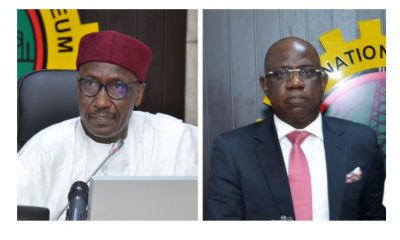
 news3 weeks ago
news3 weeks agoBreaking : TInubu appoints Bashir Ojulari as new CEO group of NNPC and GMD mele kyari get sacked, Says Onanuga
-
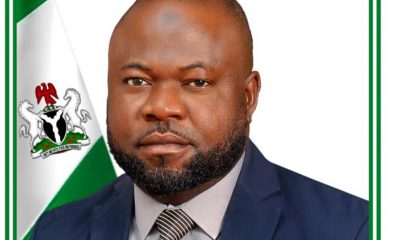
 interview3 weeks ago
interview3 weeks agoNIGERIA MECHANIZED AGRO EXTENSION SERVICE PROJECT, A STRATEGIC MOVE TO ALLEVIATE POVERTY – DR. AMINU ABDULKADIR
-
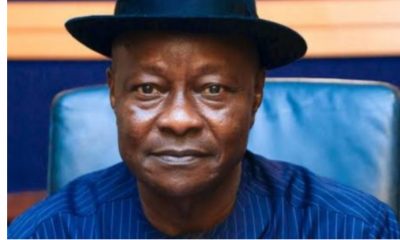
 news3 weeks ago
news3 weeks agoUpdate : Fubara ordered bombing of Rivers Assembly, I am not under duress I resigned, Says ex-Rivers HoS Nwaeke
-
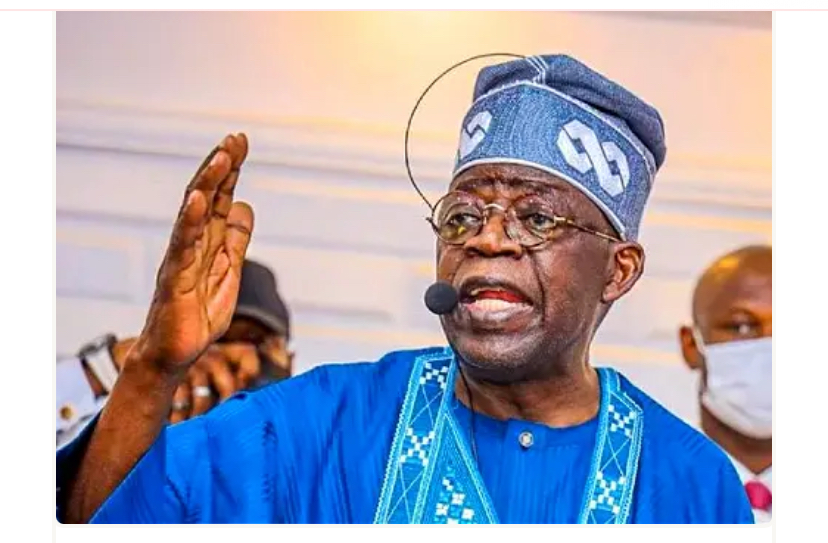
 news1 week ago
news1 week agoNothing new in FBI report on Tinubu, says Onanuga
-
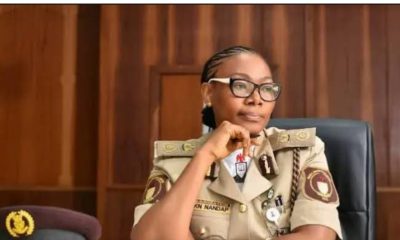
 news3 weeks ago
news3 weeks agoTinubu commended Nandap for her leadership, extends Comptroller-General tenure till 2026, says Onanuga
-
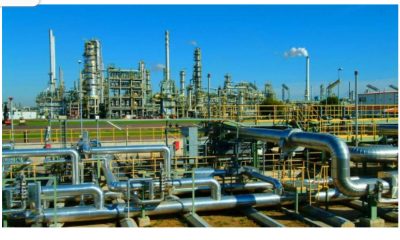
 news2 weeks ago
news2 weeks agoUpdate : FG confirms continuation of crude, refined product sales in Naira initiative, Says Wale Edu


